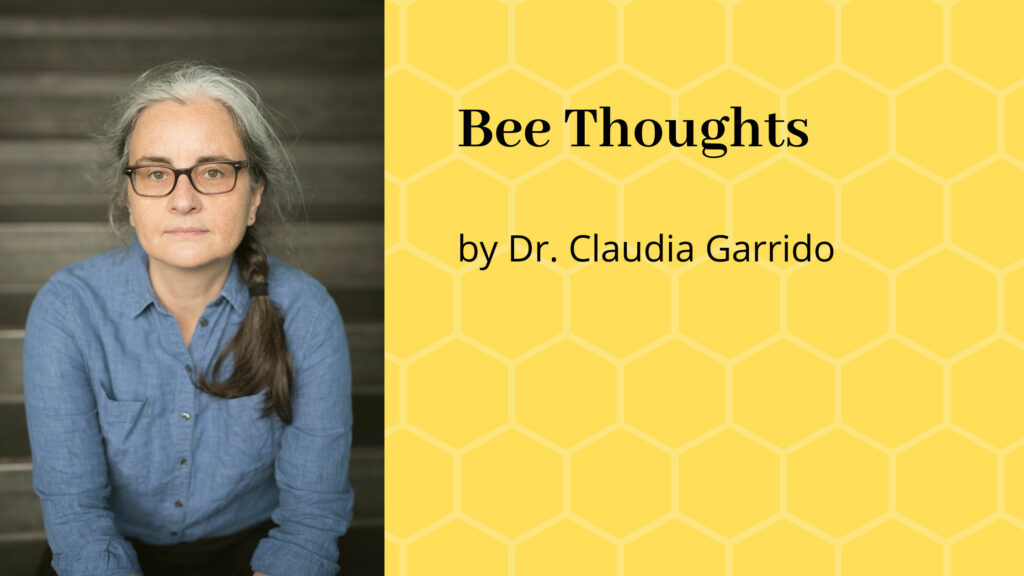Colony losses are often – I would even dare to say mostly – due to parasites and diseases. Bee health management, therefore, is essential for maintaining sustainable beekeeping activities. Unfortunately, though, many beekeepers aren’t aware of this. Vets, as specialists for animal health, weren’t trained on honey bees for a long time. This is changing only in the past 10-15 years. The situation in authorities is – with all due respect – sometimes frighteningly ignorant. All this despite the declared interest to “save the bees”. Which is a much more complex issue than it’s mostly communicated, but that’s for another time. I’ll stick with honey bee health in this post.
In a paper published in 2022, Dr. Bartlett, the author, not only gives an overview of the most common bee parasites, but also discusses some difficulties in developing treatments for those parasites. He has a few points, most prominently that we know most about the situation in Europe and North America. Which is a bad thing. One could even have the impression that parasites get interesting only when they reach these regions. An example for this is the recent spread of Tropilaelaps mites, which already was an issue for Asian beekeepers for many years.
But that aside, this paper touches on an important point: The lack of treatments for most of the diseases. We only have them for varroa mites, though there are several other issues. Even without that recent spread of Tropilaelaps.
Development of veterinary medicine for honey bees
Honey bee research, at least very often, is very close to beekeeping practice. Much of it was done in reaction of issues coming up from beekeepers. Many honey bee researchers are beekeepers themselves. This strong connection was an advantage when varroa began to threaten the beekeeping industry. The first attempts to fight the mite were acaricides (i.e. products that kill mites) used in other fields of veterinary medicine or agriculture. It was a quick trial and error to find those which work. Like amitraz or fluvalinate. But soon there were issues with resistance and residues. Organic beekeepers couldn’t use those substances, so the work of the European “varroa group” began. They developed the organic treatments we have available at the moment.
In a second step, the most important work of implementing these solutions into the practice. That was the time I began my PhD project at the University of Hohenheim. On varroa. So, I experienced (and learned) the effort it means to transfer knowledge from scientists to beekeepers. What is now an element of every large research project, was an essential part of honey bee research already in the 1990s.
Current issues with bee health product development
After the varroa group quit working, things didn’t move much anymore. Honey bees were included in the regulations on veterinary medicine, but only for varroa. To the extent that the internal protocol of the varroa group for the development of varroacides was made into a guideline. It wasn’t changed much since them, which creates some issues. It’s under review at the moment, at least. I commented quite a bit on a concept paper that EMA (the EU agency that cares about regulation of human and veterinary medicine). These processes are slow…
A huge issue though in the development of new products is mentioned also in the paper of Bartlett I mentioned above: Economic issues. The development of any medicine is costly. It needs a lot of studies, prove of stability and quality of the manufacturing, etc. The market, on the other hand, is quite small compared to other areas of animal husbandry.
A more complex situation in bee health management
Since the 1990s, many things changed. Bee health management isn’t only about varroa anymore. There are other issues, like Nosema ceranae, a gut parasite that produced large losses in Spain in 2004/05. And is still an issue in warmer areas – though often neglected by beekeepers. Or the viruses that are associated with varroa. And the already mentioned recent spread of Tropilaelaps.
Last November, I was invited to give a talk for a group of bee vets in Spain. Something I heard there very often were variations of “That can’t be only varroa!”. And I agree. Not even only diseases. I still have that sentence in mind, Amy Toth said at the EURBee conference in Cluj-Napoca in 2016: “Nutrition is the overarching principle in bee health”. There are many studies by now that confirm that. But it seems to me that this simple sentence still doesn’t arrive in the practice.
The situation is more complex now also because of habitat loss, intense agriculture, global warming and so much more. The agricultural issues have a lot of attention, which also shows in the work EU authorities invested in the review of the bee guidance. Though we’re still waiting for its implementation… That’s actually a huge issue: Regulatory procedures are very slow. I still think they’re necessary and that we’re on a good path in the EU. But everything being so slow doesn’t help in the cultural change we need in bee health management – at all levels.
How to deal with complexity
Yes, things got more complex. With that comes the need for simple answers for those which are directly affected. Aka beekeepers. But simple answers usually don’t fit for complex questions. They feel good for a while. But then they are the ground for misinformation and the lost of trust. In science, authorities, medicine. Which is the worst thing that can happen.
But there are good examples, too. Many beekeepers recognize the value of education, like in the bee pathology course in Bologna. This creates the cultural change I mentioned above. You can only develop good practices if you know about them. This also includes scientists that are available to explain their science and their application. Vets that help to implement those good practices as the animal health specialists they are. And authorities that don’t treat honey bees like flying cows. Talking from experience there… It needs education for all of these groups. And a collaborative spirit, like in that varroa group. Because only if everyone does their part, problems get managed. And this is how to deal with complexity. In bee health management and elsewhere.



